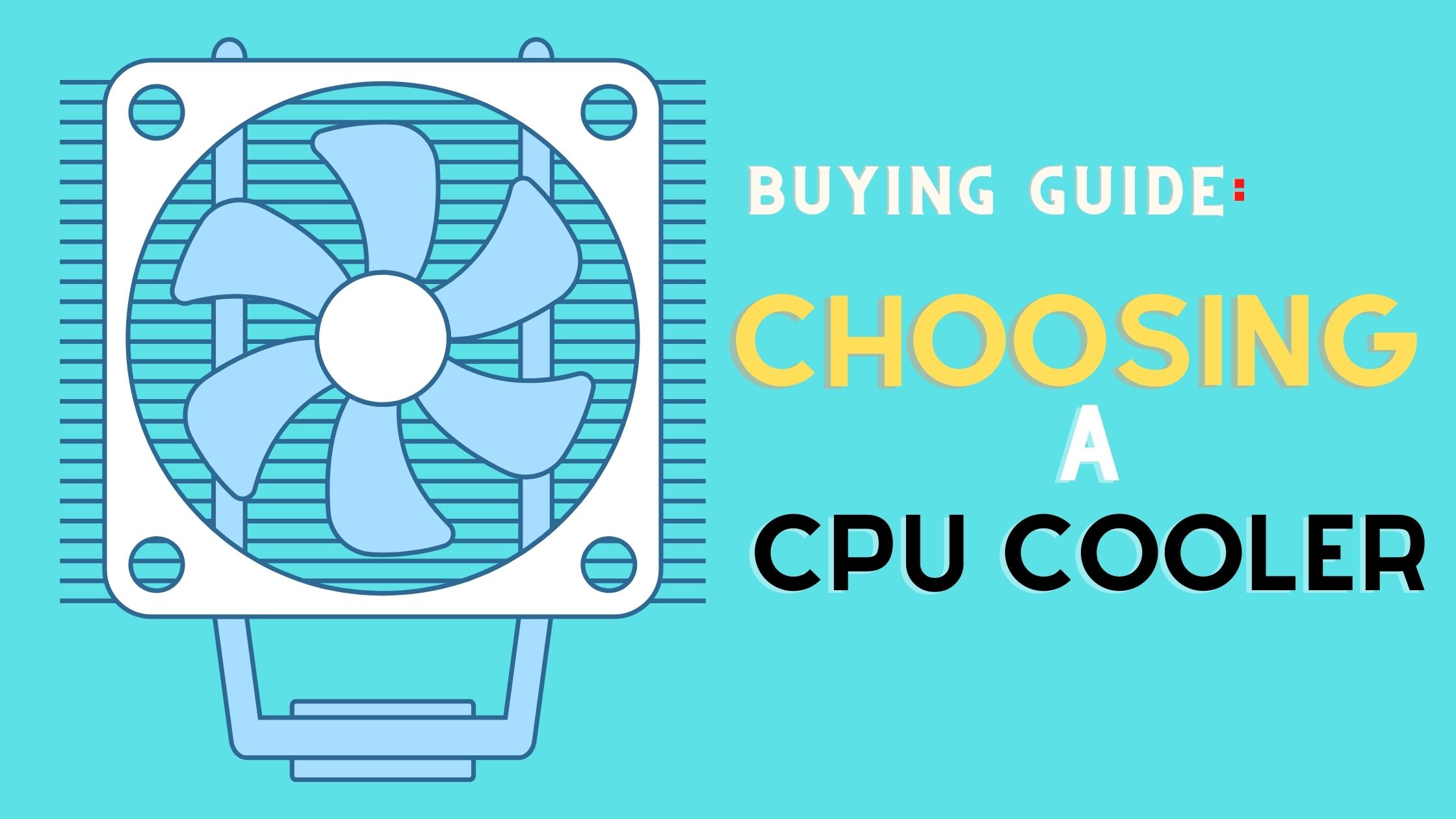
Introduction
As CPUs have grown more powerful, they also require more cooling to prevent overheating and reduce the risk of damage from thermal throttling. There are several different factors to consider when choosing a CPU cooler including compatibility with your motherboard, size, noise level, and budget.
If you’re about to buy a CPU Cooler, you need to read this!
Buying a CPU cooler is not as simple as it seems. Many different factors come into play when choosing the right one for your needs.
Choosing the wrong CPU cooler can lead to overheating or even damage from thermal throttling which can be very costly and time-consuming to fix. Make sure you do your research before buying so you don’t end up with buyer’s remorse as I did!
What is a CPU cooler and how does it work
A CPU cooler is the heat exchanger that cools the CPU, but it doesn’t cool the CPU. It simply transfers the heat from the CPU to another area where it can be cooled off. The fan is what cools the CPU by transferring this heat away using air.
The key part of a CPU cooler is called a heatsink or cold plate. The cold plate has fins on it which help to increase surface area and provide more cooling power for your CPU. A thermal paste is needed to keep everything flowing smoothly and it also helps with thermal conductivity so that the heat will transfer more easily into your heatsink.
Factors to consider when choosing a CPU cooler
The first factor to consider when choosing a CPU cooler is whether you’re running an Intel or AMD processor. Each type of chipset needs its specific type of cooler so be sure to check the specifications on your motherboard for compatibility before you buy. The size of your case will also affect the type of cooler you need to purchase, with larger coolers often being less efficient due to their greater surface area. For noise-sensitive users, you might want to choose a quieter model, although this can come at the expense of efficiency. Finally, CPUs are usually more powerful than they need to be for day-to-day tasks which mean that budget is almost always a factor when choosing a CPU cooler.
Compatibility
One of the most important things to consider when you’re looking for a CPU cooler is compatibility. You need to make sure that the cooler will fit your motherboard and that your motherboard supports the connector type of the cooler.
For instance you are looking for fans for your setup that should be compatible with aura sync.
There are three types of connectors: 120mm, 140mm, and 240mm. If you have an ATX motherboard that requires a 240mm connector you cannot use a 120mm or 140mm connection. You can, however, use an adapter that converts your 120mm or 140mm connection into either a 120mm or 240mm connection.
Unfortunately, the compatibility of your cooler does not end with these connectors. You also need to consider clearance with what is around your computer case. If you have either hard drives or side fans installed then you will probably need at least 120mm of space between the bottom of the CPU cooler and the top of your motherboard (most motherboards are only about 50-60mm high). So, if you have a large aftermarket CPU cooler (120mm+), you will need to make sure there is enough room between the bottom of your computer case and the top of your motherboard.
Last but not least, before buying any CPU fan make sure that it’s compatible with both your CPU and the socket type it uses.
Compatibility is probably the most important factor to consider when choosing a CPU cooler. If you purchase a cooler that doesn’t fit your motherboard or you don’t have enough clearance then the cooler will not work as an effective large heat sink for your computer. This can lead to overheating problems which could potentially damage your computer.
Size
Size is another very important factor when choosing the best CPU cooler. Different size coolers are designed for different types of computer builds. For example, if you have a small form factor build or if you plan on overclocking your CPU then you will need to purchase a smaller sized cooler. If you’re running your hardware stock speeds then you can probably get by with something like an air cooler or heat-pipe cooler that is larger but not too large.
As always, compatibility comes into play again when it comes to size. You need to make sure that the size of your CPU fan will fit in with the size of your motherboard and the type of socket it uses (unless you want to use an adapter). Likewise, if you already have large fans or hard drives installed in your computer case then you will not be able to fit a bigger CPU fan.
Budget
Budget is also an important aspect when choosing the right CPU fan. Especially if you’re on a tight budget then you will need to think about what size CPU fan would work best with your hardware, budget, and computer case. You will also want to take into account how often you plan on using your CPU cooler (how long it will be before you replace it). If you’re not planning on overclocking your CPU then you can most likely get away with something between $30-$60 depending on the brand/quality of the product. If overclocking is in your future then you might opt for something more expensive that will offer better performance cooling or fit better with your hardware build.
Ultimately, it’s up to you whether or not you want to research CPU coolers before buying them. If you’re going to use your computer primarily for gaming and/or the internet then it’s probably a good idea to look into what size CPU fan will best fit with your build. The more expensive the cooler the better performance it will likely have within its price range unless you’re simply looking for something to improve cooling while you’re not gaming.
Cooling Performance
CPU coolers are designed to dissipate the heat produced by your CPU, this is done through either natural or forced airflow. Air coolers are usually cheaper and easier to install, but they also have a lower dissipation effect. A water cooler can offer better cooling performance but it does require maintenance and is more expensive. Another thing that you need to keep in mind with air or water cooling is that it can be difficult to determine which one will provide better performance without doing some research first.
A fan is a key component of both air and water coolers. It’s designed to create either forced or natural airflow, which is the main reason your computer gets so hot in the first place. For fans to do their job properly, they need constant maintenance, otherwise, you will end up with overheated hardware and an unstable computer. Fans work most effectively when they are cleaned regularly and replaced before they fail.
Air Cooler vs. Liquid Cooling
An air cooler will be best suited for someone who’s not overclocking their CPU or GPU, not playing demanding games or running demanding software, and doesn’t have much to worry about when it comes to clearance in their computer case. So if you’re not overclocking anything then an air cooler should do just fine for you. The good thing about air cooling is that it’s cheap and offers better performance than not having any cooling at all. If you’re constantly on your computer then it might be a good idea to invest in air cooling as opposed to water cooling (or no cooling at all).
Water Cooling will often give better performance and cooling than air coolers but they’re also more expensive and require some level of maintenance (such as replacing the tubing/coolant and refilling it). Water cooling is recommended if you’re overclocking your CPU which will probably be the case for most gamers/enthusiasts.
Noise Levels
One of the most important factors in choosing a CPU cooler is noise level. If you’re looking for something that offers less noise then you will want to go with an air cooler, water cooling offers varying levels of noise depending on what components you choose. If you’re looking for no noise at all then it’s probably best to go with an air cooler that comes with a fan that offers the least amount of noise.
The more expensive and higher quality air and water coolers will be less noisy than their cheaper counterparts so keep this in mind when shopping around. Even though most companies say their products are silent, it’s best to read reviews and see what other customers are saying about how noisy or silent a product is before you buy.
Final Thoughts
If you’re looking for the best performance and cooling, then it’s likely that water cooling is your best bet. The downside to this type of cooler is that they are more expensive (and require maintenance), but if you’re not overclocking anything or playing demanding games then air coolers will work just fine for most people. With a variety of fans available on the market today, there should be one with a noise level suited to what you need to keep things running smoothly while keeping sound levels down at night when others might be sleeping. So take some time before making a purchase decision by reading reviews from other customers about how noisy or silent their CPU fan was overtime – after all “noise” won’t always equate to better quality!






